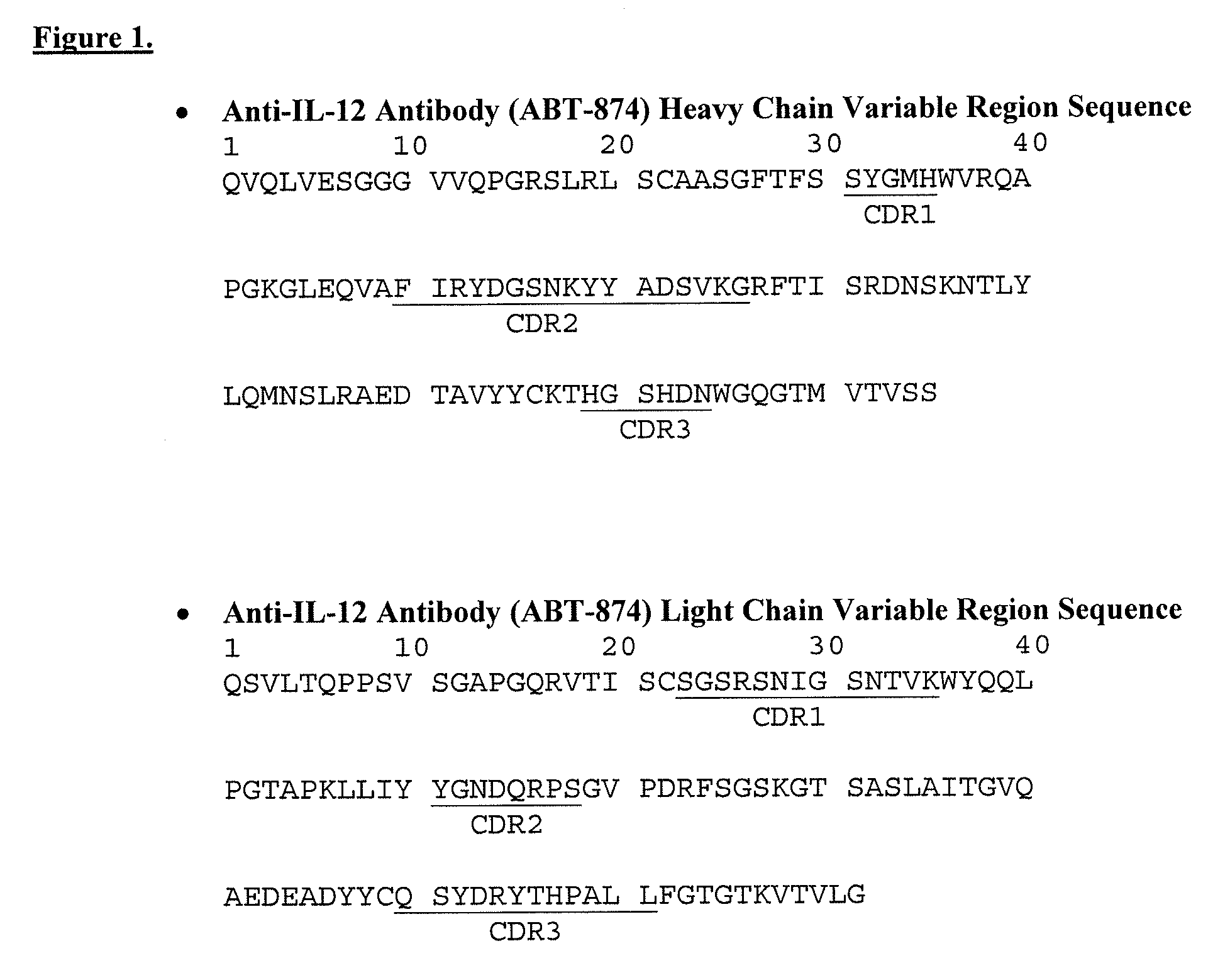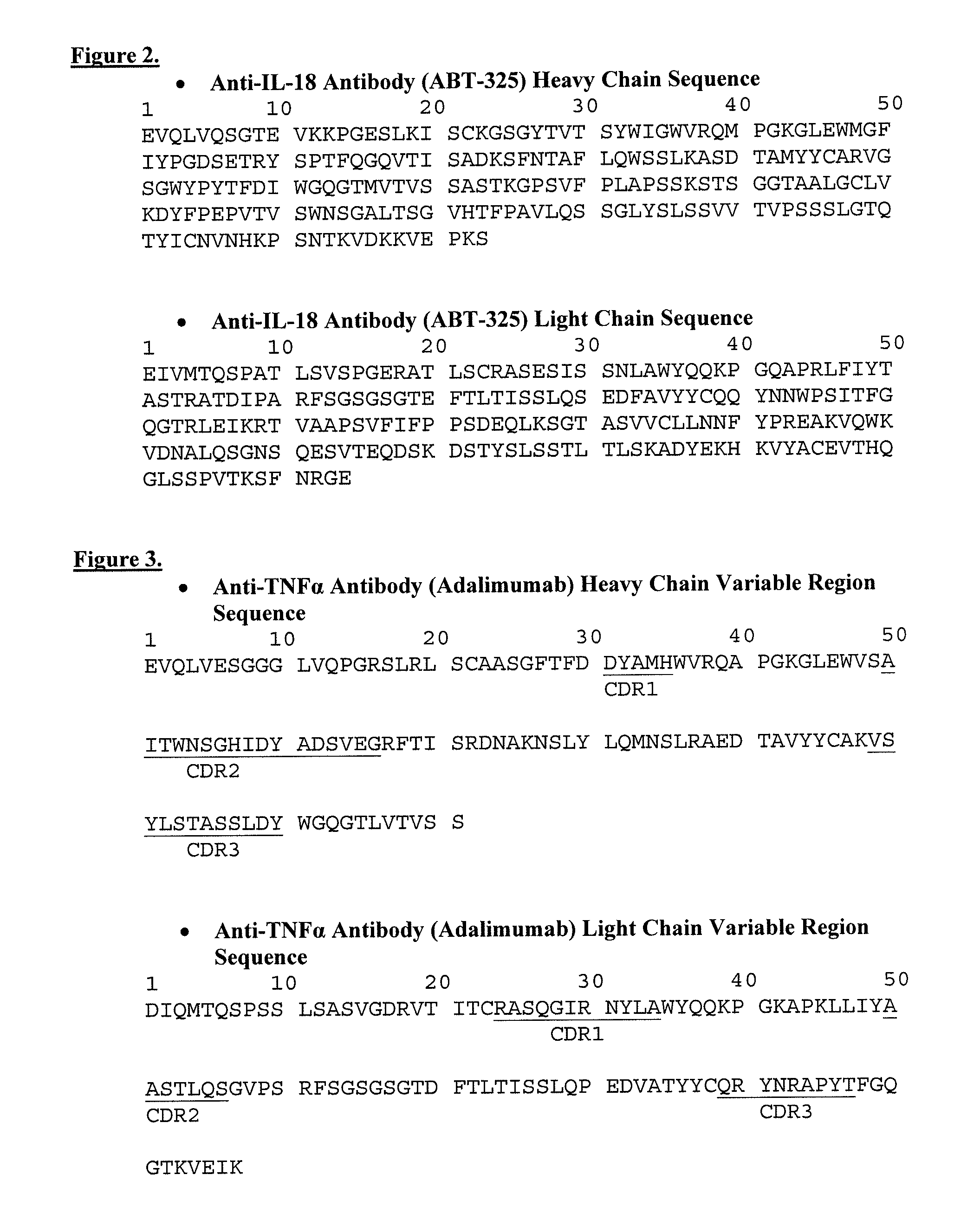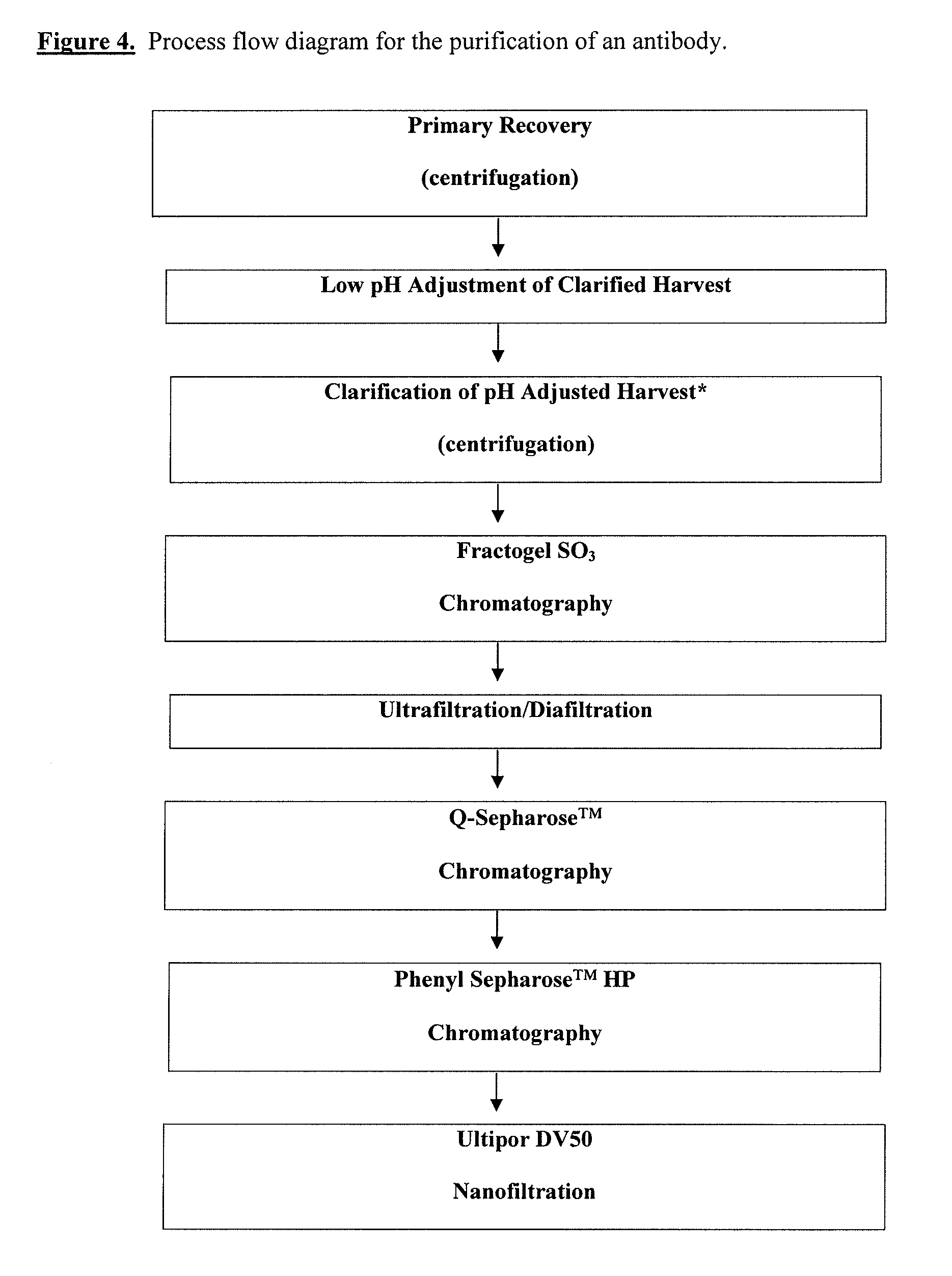Viral inactivation during purification of antibodies cross reference to related applications
a technology of inactivation and purification, applied in the field of viral inactivation during purification of antibodies, can solve the problem that does not necessarily address possible viral contamination, and achieve the effect of facilitating the elimination of these aggregations and promoting the interaction of antibodies
- Summary
- Abstract
- Description
- Claims
- Application Information
AI Technical Summary
Benefits of technology
Problems solved by technology
Method used
Image
Examples
examples
1. Viral Clearance During Purification and Isolation of Anti-IL-18 Antibodies
[0187]The objective of this study was to evaluate the viral clearance effectiveness of the purification process for anti-IL-18, antibodies. Steps evaluated include low pH inactivation, cation exchange capture chromatography (Fractogel™ EMD S03-resin), anion exchange chromatography (Q-Sepharose™ FF resin) and hydrophobic interaction chromatography (Phenyl Sepharose™ HP resin) fine purification chromatography. This study meets the ICH guidelines regarding viral clearance by orthogonal methods during drug manufacturing.
[0188]The study covered the clearance of two viruses, Xenotropic Murine Leukemia Retrovirus (X-MuLV or X-MLV) and Minute Virus of Mouse (MVM, or MMV). Following ICH guidelines, the two viruses were chosen “to resemble viruses which may contaminate the product and to represent a wide range of physico-chemical properties in order to test the ability of the system to eliminate viruses in general.” ...
PUM
| Property | Measurement | Unit |
|---|---|---|
| diameter×about | aaaaa | aaaaa |
| diameter×about | aaaaa | aaaaa |
| bed volume | aaaaa | aaaaa |
Abstract
Description
Claims
Application Information
 Login to View More
Login to View More - R&D
- Intellectual Property
- Life Sciences
- Materials
- Tech Scout
- Unparalleled Data Quality
- Higher Quality Content
- 60% Fewer Hallucinations
Browse by: Latest US Patents, China's latest patents, Technical Efficacy Thesaurus, Application Domain, Technology Topic, Popular Technical Reports.
© 2025 PatSnap. All rights reserved.Legal|Privacy policy|Modern Slavery Act Transparency Statement|Sitemap|About US| Contact US: help@patsnap.com



